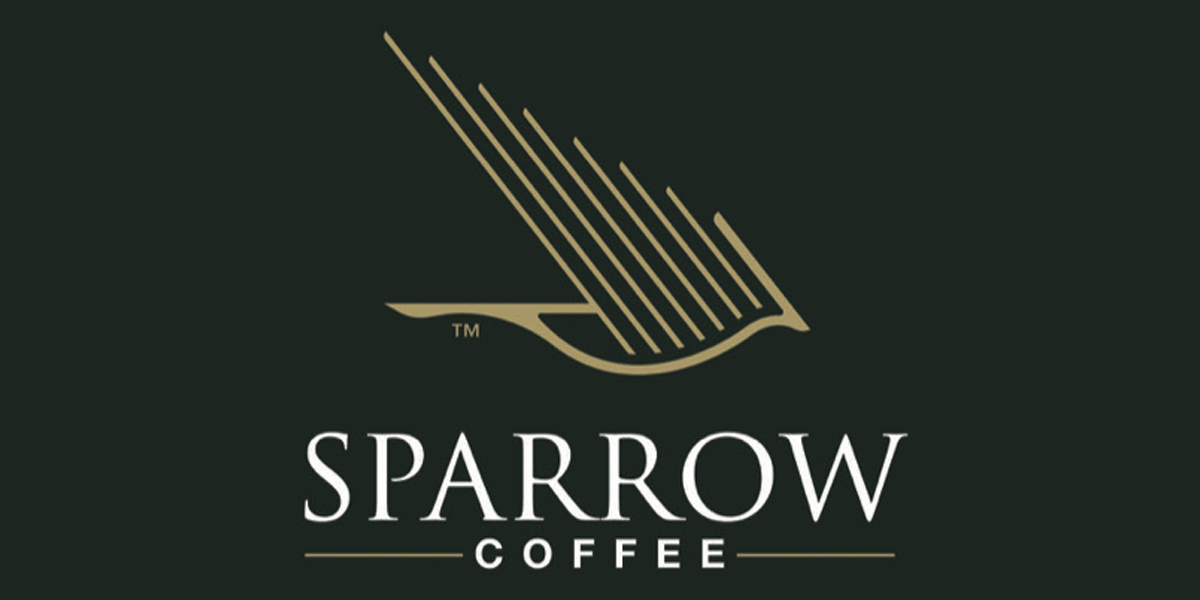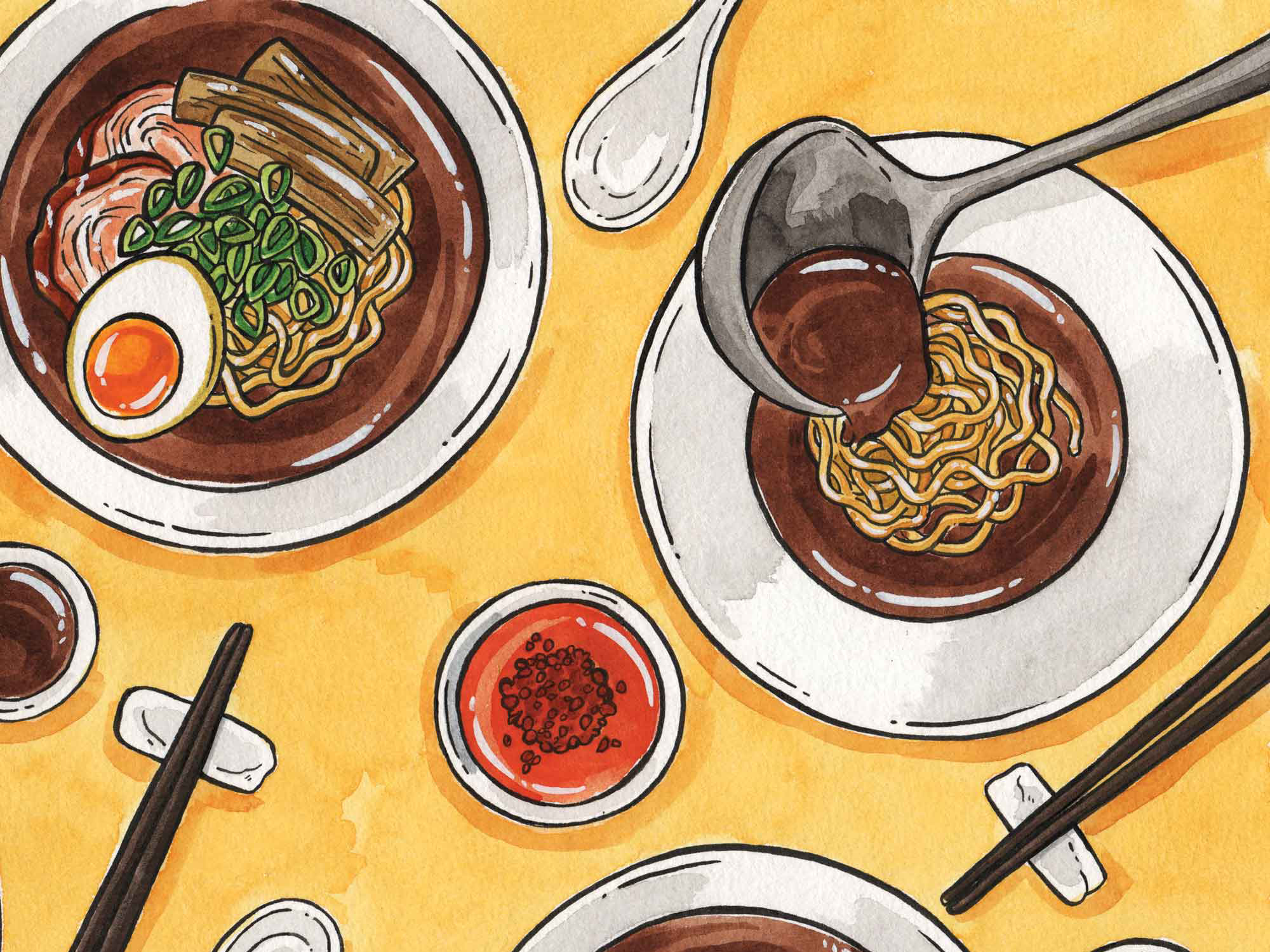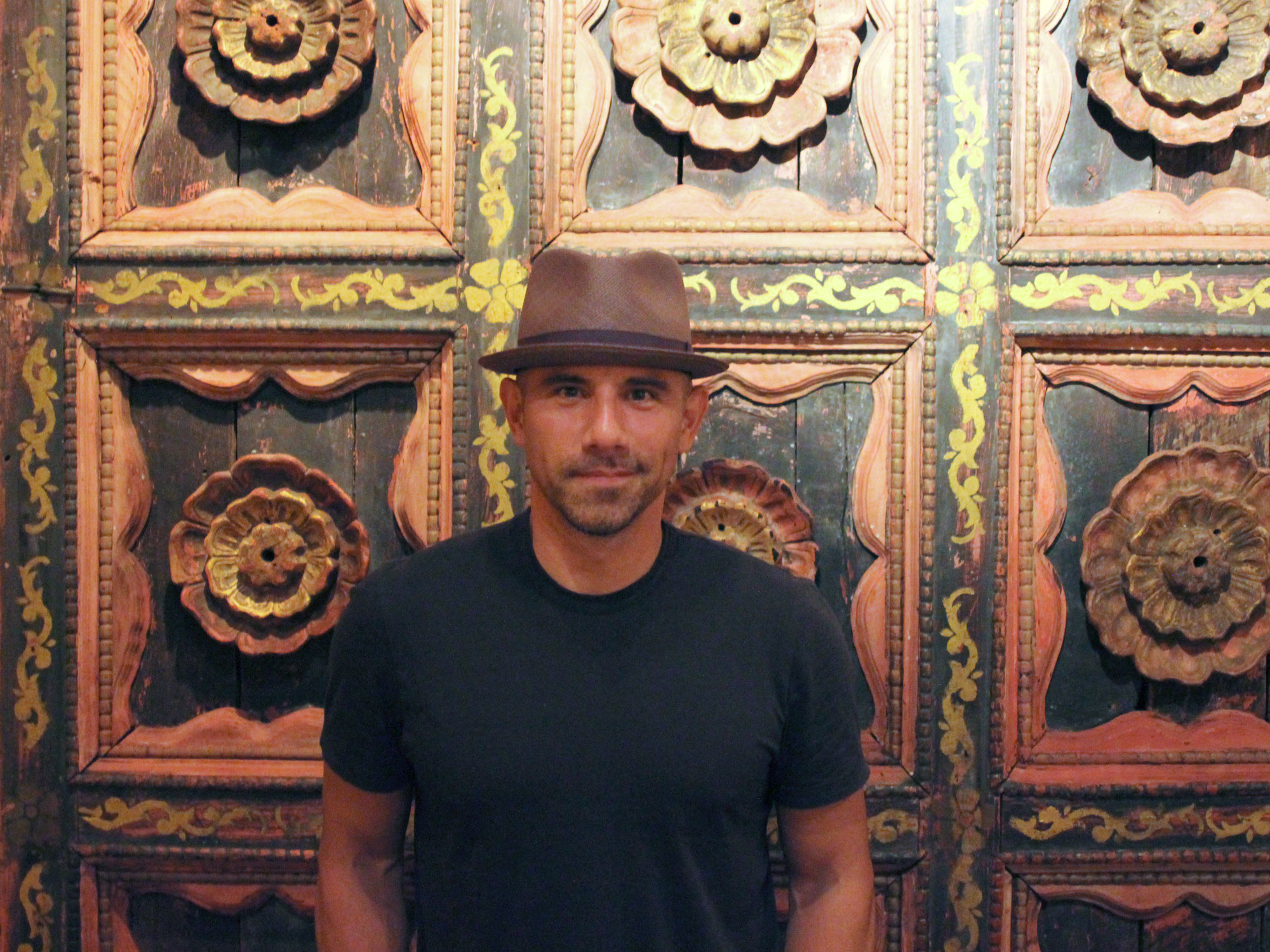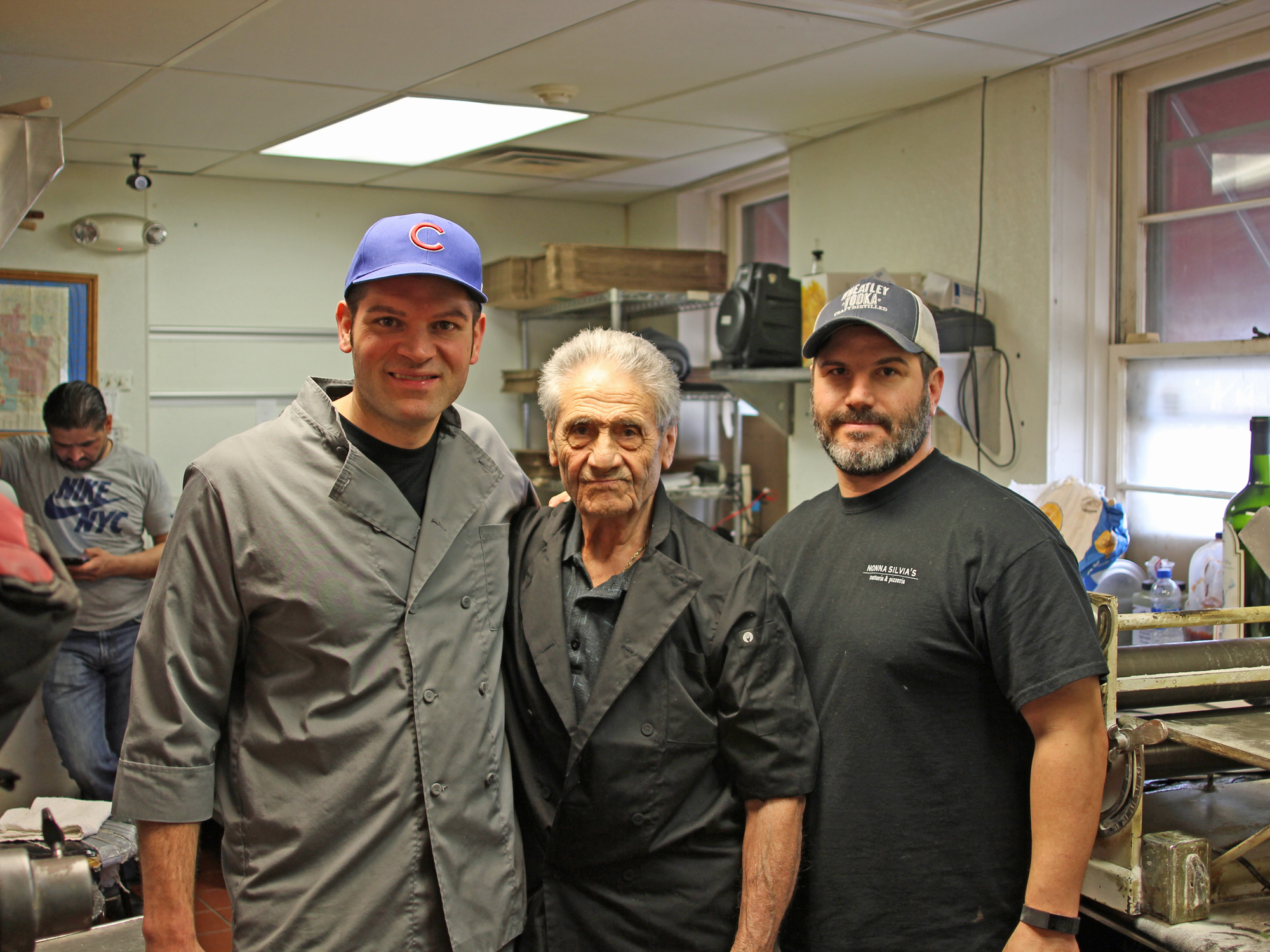IT HAPPENS HALF A DOZEN TIMES as I’m taking pictures in the window at Tortello. Someone walks by, in the Wicker Park uniform of jeans and sneakers, face down in Facebook or Instagram. They look like a character from a hip comic, animated into life. Then they catch a flash of motion out of their eyes, and look up to see Lilla Simone rolling out pasta dough, dressed in her grandmother’s peasant costume, hand-embroidered from the scarf on her head on down, no equipment more modern than a wooden rolling pin the length of a baseball bat in use.
In that instant, the person walking down Division always stops for a second, to take in the fact that medieval peasant ways have sprouted in a modern Chicago neighborhood. That centuries elapse between one side of the glass and the other. Then they move on—but maybe they’ll be back, that night or another, for freshly-made pasta straight from a village in Sardinia or Puglia. Wicker Park is now where the 2019 world of Facebook and Google meets the artisan foods and peasant ways of long ago—more literally than you might imagine, in the case of this new pasta shop and restaurant.
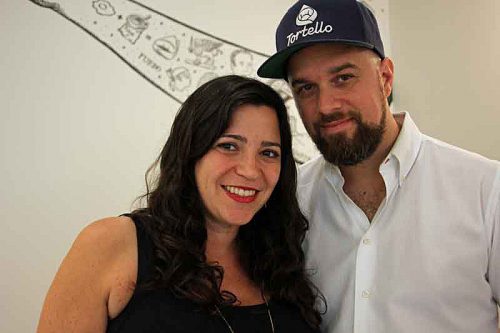
Jill Gray and Dario Monni
“I GREW UP IN A FAMILY WHERE WE HAD three boys, eating pasta breakfast lunch and dinner. 120 grams, each portion,” Dario Monni says, precisely. For his new life as the co-owner of a pasta shop, Monni could hardly be improved upon by Central Casting—an animated Italian, with a high-pitched accent loaded with charm and enthusiasm. Maybe on other days he talks sports or politics, but today he has two subjects—food and his wife, who is sitting here 38 weeks pregnant. The English words tumble out musically, sometimes missing their plurals or correct tenses, but always charming the listener.
“We are pasta lover, from day first. My memory is, I wake up in the morning, and smell coffee and pasta sauce. I always dream to have my little spot,” he says. “Every winter was spent in Venice, and the summers, I was lucky enough to spend in Sardinia where my father’s father was a shepherd and a butcher. Eating the cheese that’s coming from the animal that I see every day, opened my eyes and opened my brain to real, lasting food.”
His very pregnant wife, Jill Gray, who plans to have their second child the next Wednesday (if the kid doesn’t show up on his or her own before then), annotates the flow of information and enthusiasm coming out of Dario with helpful details. “He comes from generations of food purveyors—his father is from Sardinia, and his mother is from Venice.”
“My father from my mother’s side, he runs a specialty shop in Venice,” Dario says. “That guy for me was a mentor, he was selling Parmigiano-Reggiano back to the 50s. He always told me, ‘Dario, remember, never ever cut corners on good food. Cut corners on chairs, cut corners on anything else, but don’t sacrifice the beauty of food.’ And that is basically the project of Tortello.”
I spent three years in Paris and then London, in a neighborhood where you go to your fish shop and then your bread shop and your cheese shop, all in a row. That’s how it is in the small towns in Italy, and that’s not how it is here.
The project of Tortello seems to be a few different things as you look around—there’s an outdoor seating area, fresh herbs growing in boxes around it, and a gleaming white space with a counter showing off freshly made pastas, and a row of tables—and a vintage blue Vespa hanging from the ceiling. (The design is by Siren Betty, who’ve done restaurants like Giant and The Swill Inn.) In the evening, when I first saw it busy with families with kids, it was like an ice cream parlor; in the day, with a couple of women making pasta on the birch counter in the window, it’s more like a studio.
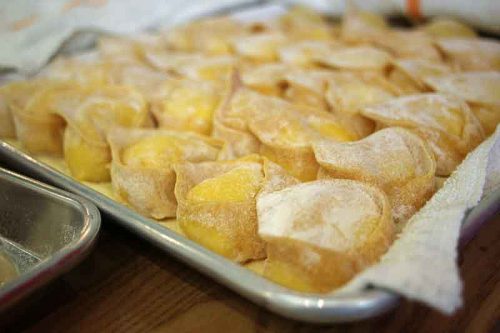
The signature tortello, common in Sardinia
In fact, it is two businesses in one—you can eat pasta at Tortello, a casual restaurant, but you can also buy pasta to cook at home from Tortello, an artisan shop. Dario’s first explanation for this is demographics: “I love Wicker Park, I study Wicker Park before we start, I walk around, and I see a huge community of families, kids. I’m realistic, people want convenience. Every day Chicago gets better food. People want convenience and good food, so why not combine the two.
“To me the best part is to see the kids eating pasta. That makes my day. Yesterday, I see a two year old eating a bowl of lumache with butter and Parmigiano, licking the plate. That from where I come from, makes my day.”
But there’s more to it than just spotting a market in Wicker Park—something hair salons and bro bars and real estate brokers, so many real estate brokers, do every day. Dario is the living embodiment of his business, but it comes from both of their life stories.
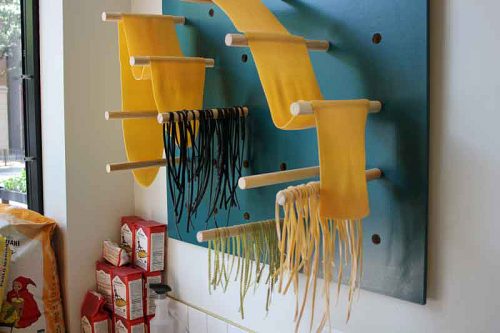
“I MOVE FROM VENICE WHEN I WAS 18. Without speaking a word of English, and with not much money,” Dario says. “I moved to London with luggage and many dreams. That’s why I wrote on my tattoo—” he means a work of art on the wall, depicting an arm with different symbols from his life—”‘Sognare è gratis,’ dreaming is free.”
He got his start washing dishes at celebrity haunt Cipriani in London, working weekends back in Venice at Harry’s Bar, peeling white peaches for its famous invention, the Bellini. The bartender told him, “Respect the peach first, then you can make a great Bellini.”
Like many who come from small villages in Europe, he wound up in a kind of rootless life—working nights in Dubai, then next in Montreal. He was back in London at a restaurant called L’Anima, working for a Sardinian celebrity chef in what was a bit of a change of approach for him—”The focus was on the food, but my job was to turn around the bar and make it work with the food.” It was also a change in lifestyle—”After running nightlife clubs, I was asked to run a restaurant, which completely changed my body schedule.”
It was in London that he met an American woman, Jill Gray. Who frankly admits, “The Italian accent helped.”
When Jill went to work for the Chicago advertising agency Leo Burnett, she was the second generation in her family to do so—her father had been Leo Burnett’s assistant back in the 1960s. Several years ago Publicis, which owns Burnett, transferred her to Paris, and she started writing a food blog there—”It was a way to get in touch with the culture, because I arrived not speaking French,” she says. “It was a way for me to try to process everything.”
After a few years a former boss from Burnett recruited her for Facebook, and she moved to London, where she met Dario; a couple of years after that, the two of them married, she was transferred back to her native Chicago. At this point you could look at both of them as examples of globalization in action, of the kind of people who are largely disconnected from their local cultures—her, a creative class member working in international capitals for an internet giant, him the kind of upscale service worker who can market his skills in hotel bars anywhere. Wicker Park is full of people like them, touching down in Chicago for a few years before the next assignment in San Francisco or Hong Kong.
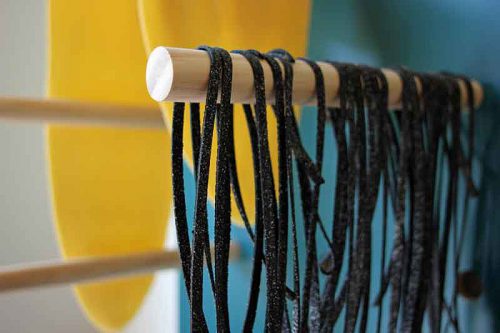
Except that’s not at all how they saw their lives. “I spent three years in Paris and then London, in a neighborhood where you go to your fish shop and then your bread shop and your cheese shop, all in a row,” Jill says. “That’s how it is in the small towns in Italy, and that’s not how it is here. You go to Mariano’s, you go to Whole Foods, and you buy everything.
“Even when we first arrived back in Chicago three years ago, Dario went out to Harlem and Addison, where all the Italian stuff is, there’s an amazing little community there. And he said, finally I found a pescateria, I found a fish shop, run by a 70-some year-old man from Calabria, and he was having Dario taste the clams raw. He was like, ‘I found it, I found it!'”
She sighs. “And on his third visit there, it was closed. He found the guy and he said, what’s going on? And he said, my refrigerator system broke, it’s 30,000 dollars to fix it, I don’t have any kids to take over the business. They all came here to have a better life for their kids, and so you’ve got this generation of Italians that started their artisanal shops here. But they don’t have childen taking them over, so they’re just closing when they retire. And that killed Dario, so he said, I’ve gotta do something.”
So they put down their roots in Chicago—they had a baby, Romeo, and now they’ve started a business. Jill goes back to when they were first dating to tell a story about Dario’s dream, and why she was so receptive to it. “The first time he brought me to Sardinia, he said, okay, Jill, I’m going to make you a spaghetti pomodoro basilico”—the simplest spaghetti with tomato sauce—”tonight, in London, and I’m going to make the same exact dish for you tomorrow, in Sardinia. And you tell me what you taste, right?
“So we had our spaghetti pomodoro in London, with our sad British tomatoes. And then we arrived in Sardinia, and he kept to his word. Picked up some spaghetti, some tomatoes, made it the same exact way—and it was a different dish.”
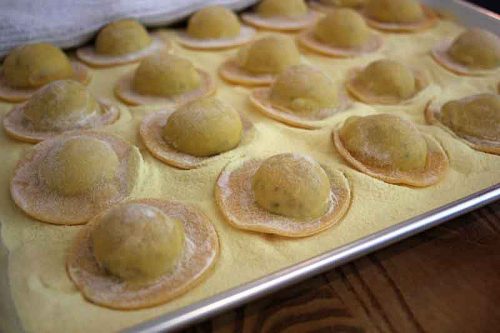
Cappelli del prete
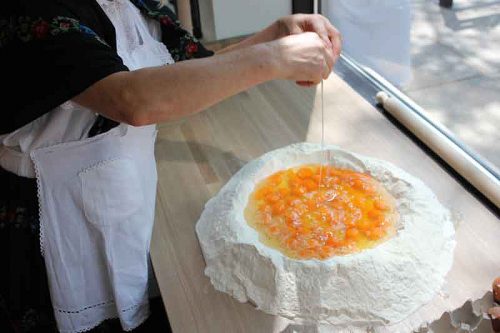
Lilla vs. the Vulcano
WHICH BRINGS US TO THE STORY OF the eggs. I’ve seen that Lilla is already making the vulcano, the inevitably-named mound of flour filled with bright orange eggs, Tequila Sunrise eggs. Jill says, “When he arrived here and he cracked open an egg, and they’re pale yellow, he’s like, what is this? In Italian, the yolk is called rosso—red.”
“And I said, no, I want the same color of the one I had in Italy,” Dario continues. “So I call my grandmother in Italy, she’s 90, and I say—she had chickens, like everyone has dogs now, they had chickens—why your eggs are so red.” He imitates an old peasant lady’s scratchy voice: “‘Ennnh, Dario, we used to give them carrots, tomatoes, butter squash.’ So probably what they were eating gave them the color.”
He decided to make it his project, to get truly rosso eggs. “So I went to Wisconsin, I contact a few people, farmers, and I introduce myself. Many people close the door on me. ‘You’re crazy, get away, crazy Italian guy, never gonna happen.'”
“And then you found a crazy woman,” Jill says.
“I found this woman in Wisconsin, Yuppie Hill is the name of the farm,” he says. “So I drove there, in the winter days, to the middle of nowhere, and I met her,” Lynn Lein, the farmer. “And I said, please tell me your story. Yah, she was in the fashion industry, and she had three boys, and one day one of them brings home a chicken. This chicken becomes like the dog, and they became so passionate for the chicken that pretty soon they became five, ten. And then they started, actually, to do a bit of eggs production. So she quit the fashion industry, and they decided to do chickens.
“So when I hear this story, it blows me away. I tell her about the project, and we decide to do this,” he says. “So we start to feed the chickens with different natural foods. We start with marigold, which gives the eggs a bit of natural color. And we track the chickens for a few weeks—we start with fifty chickens. And she shows me this thing, how you describe it—”
“It’s like a paint wheel,” Jill says. “Of different shades of yellow. We started at three—”
“And the goal is 15,” Dario says. “So we start with marigold, and after three months we get it from number 3 to number 9!” he says, with an almost mad scientist level of glee. “And I say, this is so cool, I want to keep going. And she was so excited to do it. So she asked the guy who takes care of the diets of the chickens, and he said, let’s add some paprika,” which Dario says stressing the “pop,” like in “paprikash.”
“From the moment we add paprika, the color is right.” Fifteen! But I wonder if the spice will be hard on the chickens. “We realize that the chicken digestion, is five times better. Because paprika helps the digestive system. But now I want to do it for everyone,” spread the word of paprika-fed healthier chickens. “And you’re gonna see, the color of the eggs. The contrast between the white of the flour and these eggs, is gorgeous.”
Gallery: Lilla Makes Pasta at Tortello
NOW LILLA HAS PUT ON her grandmother’s costume and it’s time for me to take pictures of her making pasta.
Lilla Simone is a pasta-making expert, brought here in the first several weeks of the shop to get the pasta program off to its proper start. Dario says, “She’s from Altamura, where the best bread in the world comes from. She’s a woman with a lot of passion, I love that. I think people in this industry without passion, they need to change jobs.”
Lilla is the head of an organization called the Club delle Orecchiete in Altamura. “She does cooking classes and the most important thing, she brings the history and the tradition of Puglia shaped pasta,” Dario says. “It’s a really hard shape to make, I learned yesterday, of course my shape is not perfect.”
“She got him to do one,” Jill says.
Lilla doesn’t have much English that isn’t words for types of pasta, but Dario tells me something she told him while she was teaching him how to make the ear-shaped pasta: “Making orecchiete to me is relaxing. I dream my brain away when I make orecchiete, I fly away.”
That strikes me as a pretty good description of the experience the whole restaurant is about—giving people in a trendy neighborhood in a major urban center a chance to fly away to something that’s dying out where it comes from. Before I can get too far into my thoughts on this aspect of globalization, Jill offers her much more well-thought-out one.
“It’s super prevalent in the southern part of Sardinia where he’s from, you go into these towns and they’re ghost towns. It’s a blue zone so you’ve got lots of over-100 year olds, but very few young people. All across Italy they’re flocking to the cities, and the cities are getting Starbucks and big grocery stores and chains and all that. So while these small towns all have a fresh pasta shop, they have an artisanal shop of every kind of food, the big cities are shifting their ways to be more similar to America.”
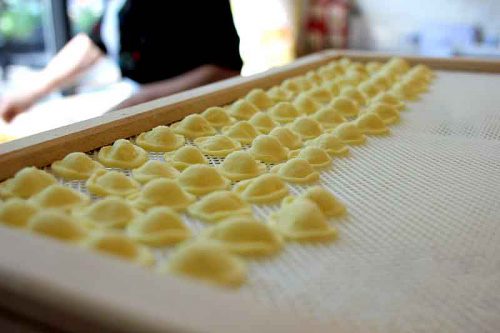
Orecchiete
So this is their attempt to counterbalance that, by bringing something of Italian ways to America. That’s a macro view; Dario’s is much more micro, about getting people to eat pasta the classic Italian way. “It’s my job, my responsibility to teach people how to cook it,” he says. “They ask me which sauce I should put in, and every pasta deserves the right sauce. So the more intense pasta needs a stronger flavor, and our signature pasta, the tortello, that needs not much, because the flavor of buratta is so good.
“We cannot accommodate every client, and we believe in what we serve. If someone asks me the wrong sauce and the wrong pasta, I give my opinion.” This draws a knowing chuckle from Jill. “Last night, there was a woman with a beautiful dish like bucatini with fresh lobster, and the woman says can I have parmigiano-reggiano on top. I almost had a heart attack, I say, ma’am, it’s fresh beautiful lobster with fresh cherry tomato, I will not advise you to put parmigiano.
“And she said to me, I trust your judgement. And I will let you know if I don’t like it. She’s almost licking the plate. I say, how was it without cheese? She says, ‘You were right!’ Different culture, different mentality. This is why I love America.”
So Tortello is about teaching the right way of making and eating pasta, and for Dario, it’s also about supporting the right kinds of producers, a philosophy shared by the veteran Chicago chef they hired, Duncan Biddulph (Lula Cafe, Rootstock). “The sour cherry granita on the menu—that was Duncan, going to the Green City Market and coming back with boxes of sour cherries,” Jill says.
“With every single product, I’m trying to support a small producer,” Dario says. “We have olive oil from Genoa and Sicily, 90% of the wine is organic, I get the flour from a great company in the north of Italy. I’m supporting the women’s association—there are a few labels that are run by women since the 60s, working on the soil every single day. For me that is important—”
“He had a very strong mother, very strong grandmothers,” Jill says.
“My wife made me the cookies I grew up on,” he says. This seems a non-sequitur at first, but it’s quickly not—women raising things, women making things, it’s the same, especially to a kid. “That taste makes me happy when I walk in Tortello, brings me a bit of my childhood memory. Everybody should have that kind of moments. It makes me feel like I can smile and be a kid again.”
One more Dario story—this is only after a week of operation, mind you. “Yesterday, people bought three pounds of the tortello, and they say ‘Dario, how can I cook?’ I say very simple, just butter and sage. They say oh, I have the butter, I have to go buy the sage. I say, look, I have a garden for you. Outside, I plant all Italian herbs. Basil, sage, parsley, rosemary and mint. They went there, I give them a few of the sage, they put in the bag. That makes me happy. That’s more important than anything else.”
Epilogue: New baby Rocco joined his big brother Romeo in the family on July 17.
Michael Gebert is il mercante of Fooditor.
Latest
Join the Discussion
After you comment, click Post. If you're not already logged in you will be asked to log in or register with Disqus.
















